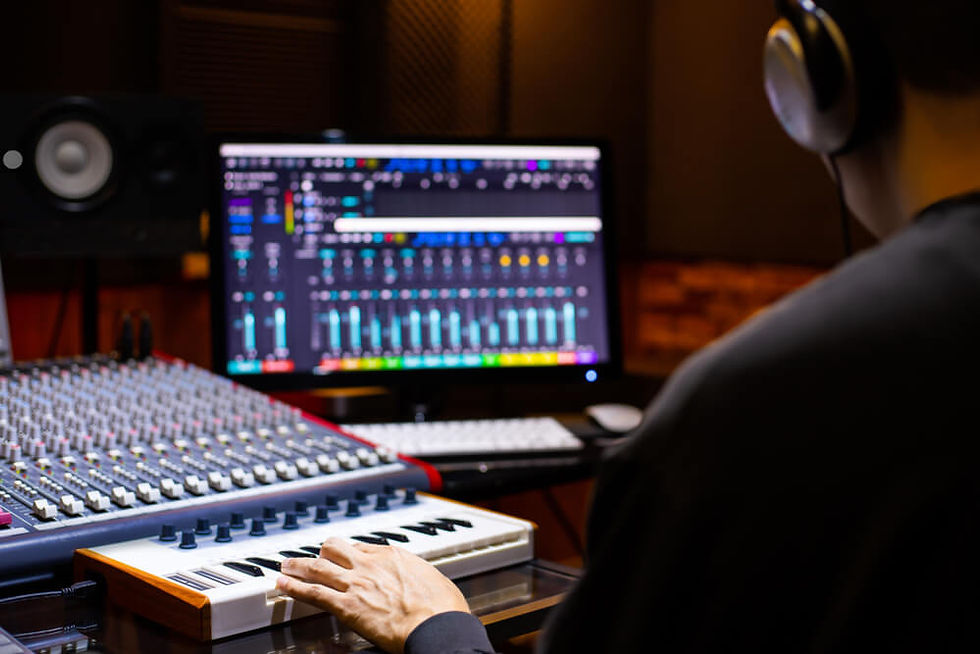The Essentials of Music Production: A Comprehensive Guide
- audioadventuresenq
- Jan 5, 2025
- 2 min read

Introduction:
In the digital age of music creation, the art of music production has become more accessible than ever before. Whether you are a seasoned producer or a beginner looking to dive into the world of music production, understanding the essentials is crucial for creating high-quality, professional-sounding tracks. In this blog post, we will explore the key components of music production, including recording, editing, mixing, and mastering.
1. Setting Up Your Home Studio:
Creating a conducive environment for music production is essential for achieving great results. Setting up a home studio involves choosing the right equipment, including a computer, audio interface, studio monitors, headphones, and microphones. Acoustic treatment of the room can also make a significant difference in the quality of your recordings.
2. Recording Techniques:
Recording is the first step in music production, and getting it right is crucial for creating a solid foundation for your track. Understanding microphone placement, signal flow, and proper gain staging are essential for capturing clean and high-quality recordings. Experimenting with different recording techniques can help you achieve the desired sound for your track.
3. MIDI and Virtual Instruments:
In addition to recording live instruments, many producers use MIDI controllers and virtual instruments to create music. Understanding MIDI basics, such as note input, quantisation, and editing, can help you harness the power of virtual instruments to add depth and creativity to your tracks.
4. Editing and Arrangement:
Editing is where you refine and shape your recordings to create a cohesive track. This involves tasks such as comping takes, time-aligning tracks, tuning vocals, and editing MIDI performances. Arranging your track involves structuring the elements in a way that builds tension, creates interest, and keeps the listener engaged from start to finish.
5. Mixing Techniques:
Mixing is the art of balancing, processing, and enhancing individual tracks to create a cohesive and polished sound. Understanding concepts such as EQ, compression, reverb, delay, and panning is essential for achieving a professional mix. Experimenting with different mixing techniques and tools can help you develop your own unique sound.
6. Mastering and Finalising:
Mastering is the final step in the music production process, where you prepare your track for distribution and release. This involves tasks such as adjusting overall levels, applying final EQ and compression, and adding metadata. Mastering is also where you ensure your track sounds consistent across different playback systems and platforms.
Conclusion:
Mastering the essentials of music production requires dedication, practice, and a keen ear for detail. By understanding recording techniques, MIDI and virtual instruments, editing and arrangement, mixing techniques, and mastering processes, you can take your music production skills to the next level. Experimenting, learning from others, and staying open to new ideas are key to developing your own unique style and sound as a music producer.
Expanding your knowledge through online tutorials, courses, and workshops can provide valuable insights into advanced music production techniques. Building a network of fellow producers, engineers, and artists can also offer opportunities for collaboration and feedback. Developing strong listening skills and staying up-to-date with industry trends and technologies are vital for growth. Remember, music production is a continuous learning process, so don't be afraid to experiment, make mistakes, and refine your skills. With dedication and passion, you can hone your craft and create music that resonates with audiences worldwide.





Comments